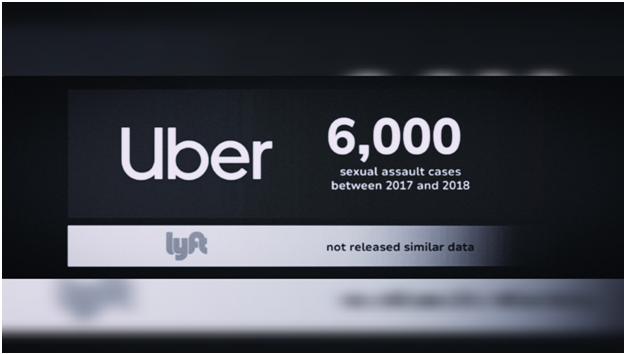The
increasing popularity of rideshare platforms like Uber and Lyft has significantly reshaped
the transportation sector. Yet, a troubling pattern of reported sexual violence and physical
assaults involving both drivers and passengers has gained significant attention.
Consequently, there has been a notable increase in lawsuits targeting Uber and Lyft.
Rideshare
services introduce a distinct environment that unfortunately can be exploited by predators.
Unlike traditional taxi services, rideshare drivers, operating as independent contractors,
aren't subject to the same regulations or licensing standards. This lack of oversight,
combined with the absence of safety features typically found in taxis, potentially heightens
the risk of assaults within the rideshare industry.
Another
contributing factor to this risk is the widespread perception that ridesharing offers a safe
alternative for individuals unable to drive due to intoxication. This perception, coupled
with features like carpooling that bring together strangers, significantly contributes to
the incidence of assaults.
Recent
data has shed light on the extent of these issues. Between 2017 and 2018, Uber reported
nearly 6,000 cases of sexual assault, with passengers comprising the majority of victims.
However, drivers, especially female drivers, also face risks. While Lyft hasn't released
similar data, media reports and legal documents suggest similar trends within its
operations.
Physical
assaults and fatalities are additional concerns within the rideshare industry. Uber's US
Safety Report documented 19 fatal physical assaults between 2017 and 2018, involving riders,
drivers, and bystanders. The absence of safety measures in rideshare vehicles compared to
taxis potentially exacerbates these risks.
Victims
of rideshare assaults encounter significant obstacles in seeking justice and support.
Rideshare drivers, classified as independent contractors, lack the protections afforded to
traditional employees, often bearing the financial and emotional burdens of assaults
themselves. Rideshare companies' limited obligations to cover these costs compound the
issue.
Nevertheless,
survivors of rideshare assaults are increasingly seeking legal recourse. As awareness of
these incidents grows, survivors are filing civil lawsuits against Uber and Lyft, seeking
legal redress and accountability from these companies. Hundreds of such lawsuits have
already been initiated, with survivors aiming for legal compensation and corporate
responsibility.
These
lawsuits could carry substantial implications for rideshare companies, investors, and legal
practitioners alike. A favorable verdict for the plaintiffs could result in significant
financial liabilities for Uber and Lyft, potentially necessitating the implementation of
enhanced safety measures.
This
evolving landscape emphasizes the imperative for rideshare companies to prioritize safety
and for legal professionals to monitor these developments closely. With more victims sharing
their experiences and more lawsuits being filed, the legal, financial, and regulatory
dynamics surrounding rideshare services will continue to evolve. All stakeholders involved
must remain vigilant in monitoring these developments.





